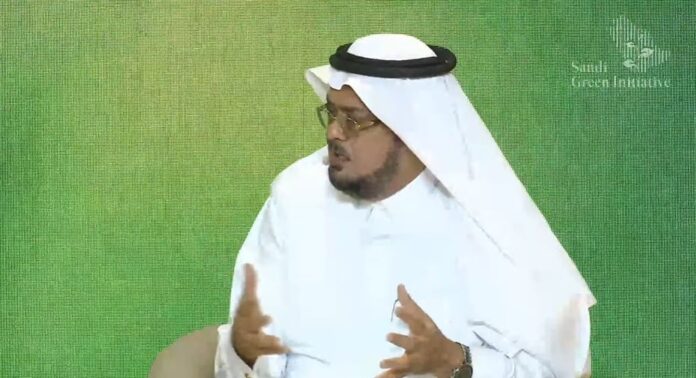RIYADH: The private sector will pay a major part in Saudi Arabia’s journey to becoming a hub of sustainability, according to Osama Faqeeha, the Kingdom’s deputy minister for environment.
Speaking during a session at the Saudi Green Initiative in Sharm El-Sheikh, Egypt, on the sidelines of the UN’s Climate Change Summit, Faqeeha said environmental sustainability is an urgent global requirement.
“Everyone should participate in the sustainability journey, the NGOs, the private sector, the civil society organizations, and all segments of society. Environment sustainability is a main pillar and milestone for social welfare and economic development,” said Faqeeha.
The deputy minister added that the Kingdom’s sustainability initiative to plant 10 billion trees in the desert to tackle climate change and environmental issues has started showing benefits, as private entities are also joining the scheme.
“It is not only important to cultivate 10 billion trees, the vitality is that they should be sustainable. ‘Til now, and we are in the very initial phase, there are commitments with more than 600 million trees, and 50 percent of them come from major private companies,” he said.
The project is one of more than 60 initiatives that form part of the Saudi Green Initiative goals, announced by Crown Prince Mohammed bin Salman last year.
According to the SGI targets, 10 billion trees would help rehabilitate 40 million hectares of Saudi land, restore vital ecological functions, improve air quality and reduce sandstorms. The Kingdom has already planted 8.4 million trees, according to government figures.
The deputy minister further pointed out the increasing number of trees in the roads and desert will change the lifestyle of people, and it will enhance the travel experience across the Kingdom.
“It is not about the number of trees, it is all about changing lifestyles which will impact the quality of life, and health, along with the absorption of pollutants and supporting outdoor activities,” he noted.
Faqeeha said that the Middle East Green Initiative was launched after it became clear that ensuring environmental sustainability cannot be done at a national level and should be complemented by actions from regional and international levels.
Abdulrahman Al-Fadley, Saudi Arabia’s minister of environment, water and agriculture said that his Ministry has a clear strategy to identify gaps and challenges since its launch.
“We are working to achieve sustainable economic development that would preserve and maintain the sustainability of natural resources,” he said.
Al-Fadley added that the ministry will promote and explain bylaws to stakeholders to raise awareness among them, and will make them understand that these laws are necessary for environmental stability.
“I believe that the future is promising. We are working on the national level by launching environment-centric initiatives. We have increased the number of protected areas to 30 percent. We have objectives to recycle 90 percent of waste, along with newly established centers working on climate change,” said Al-Fadley.

